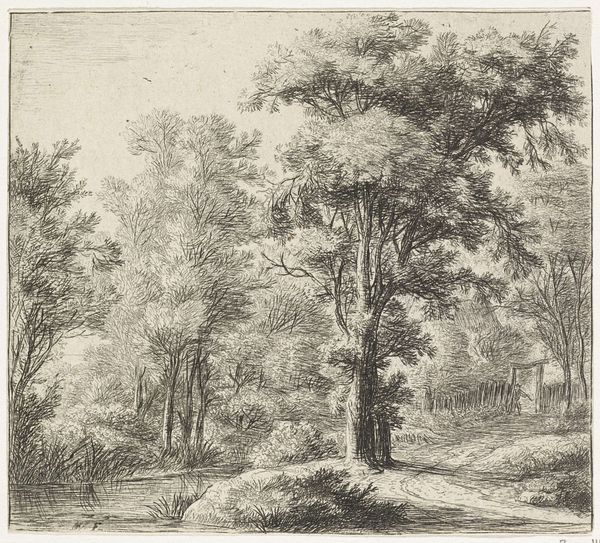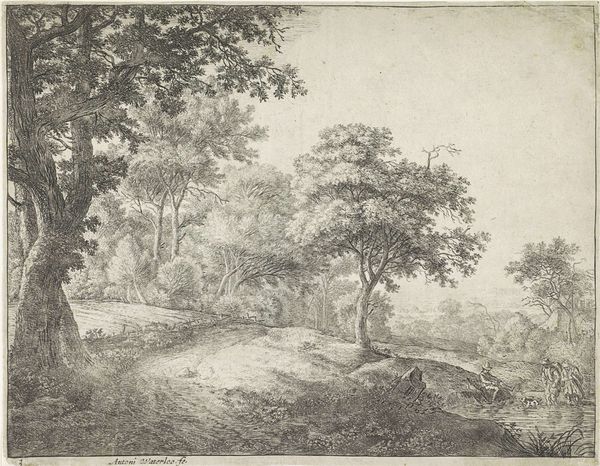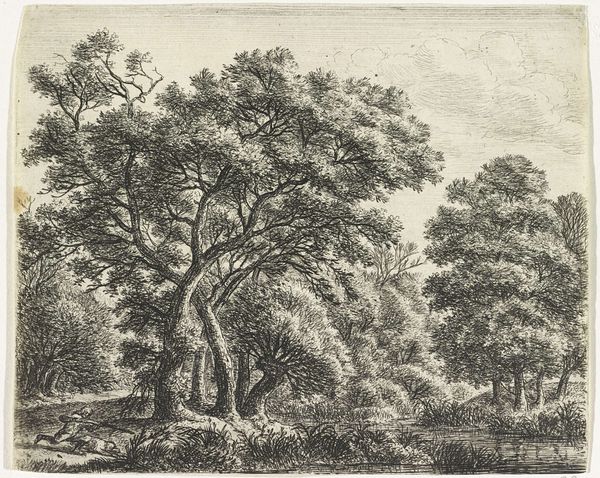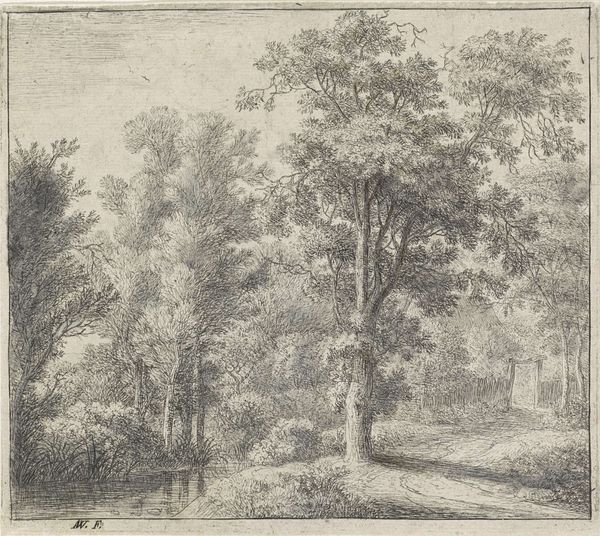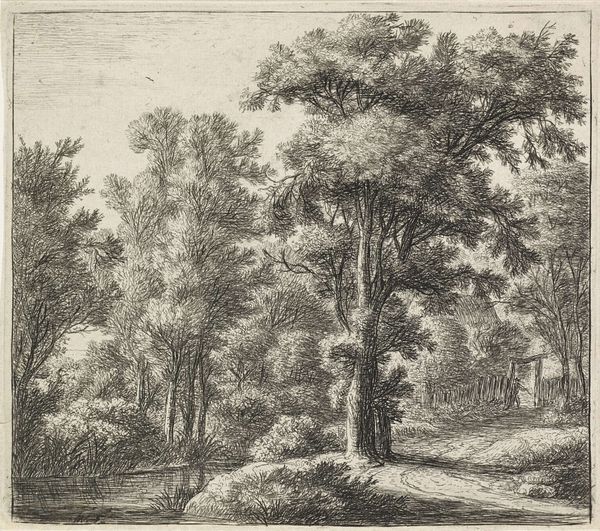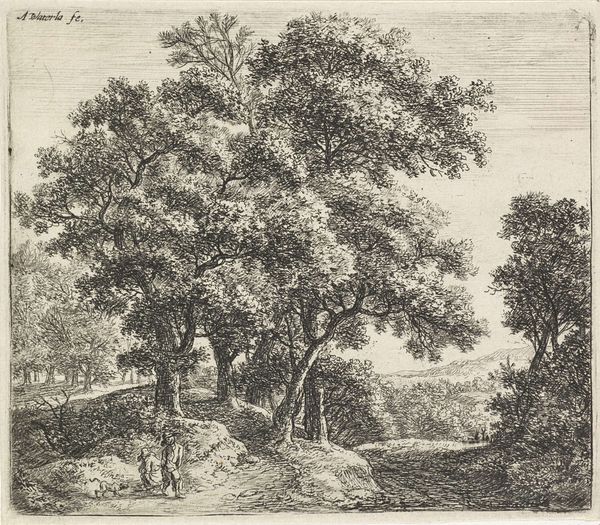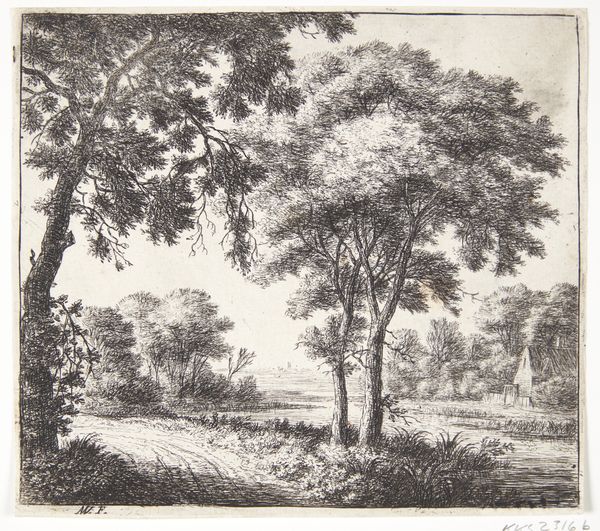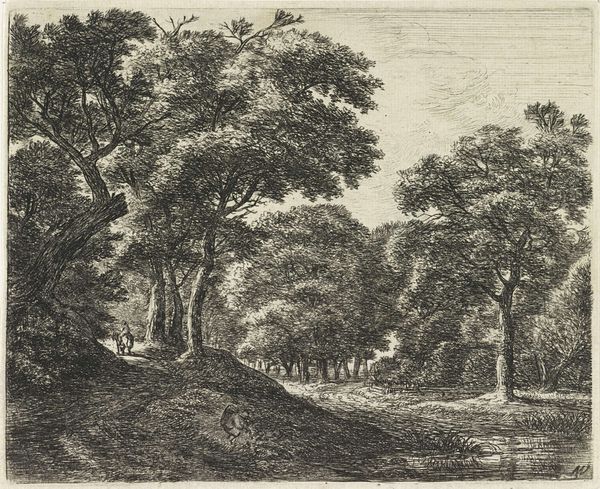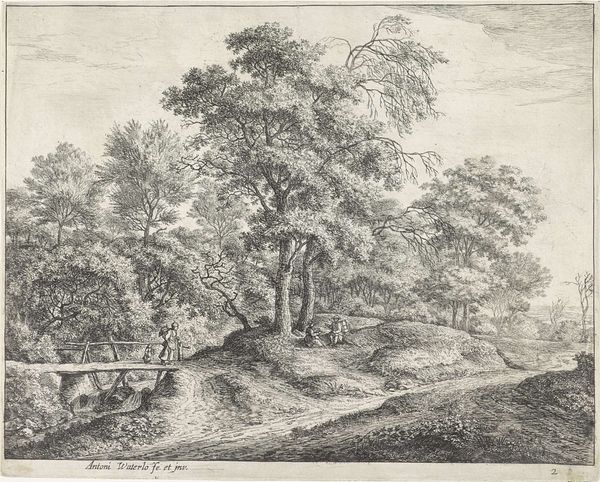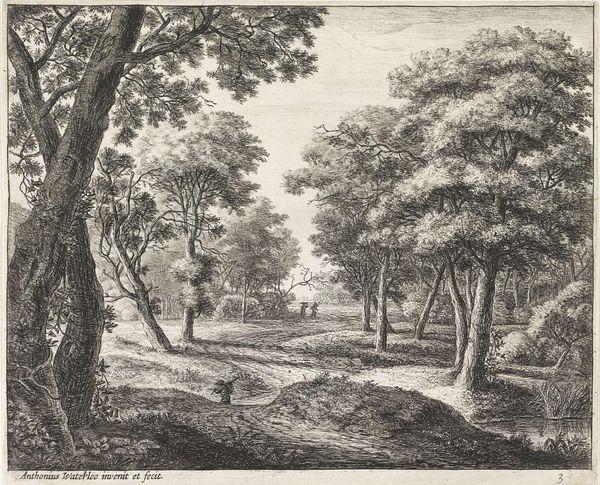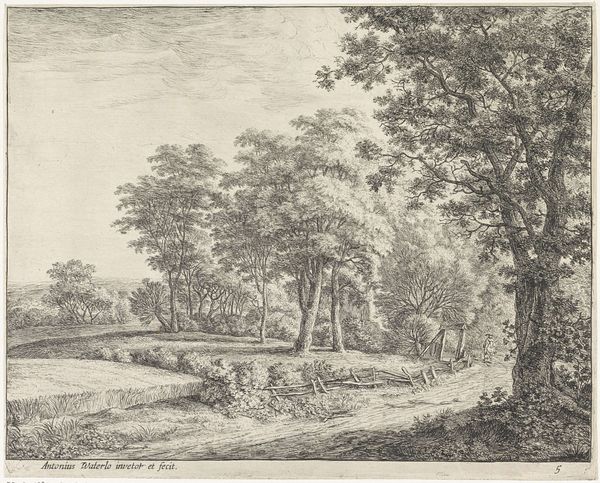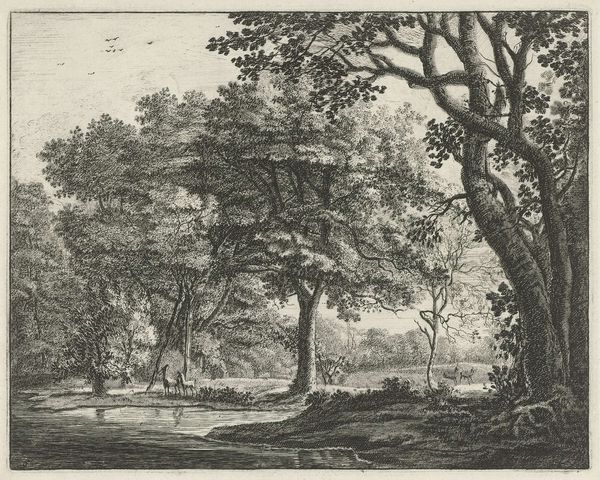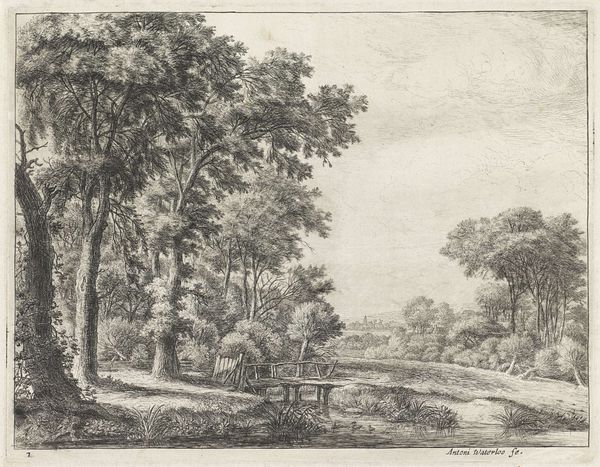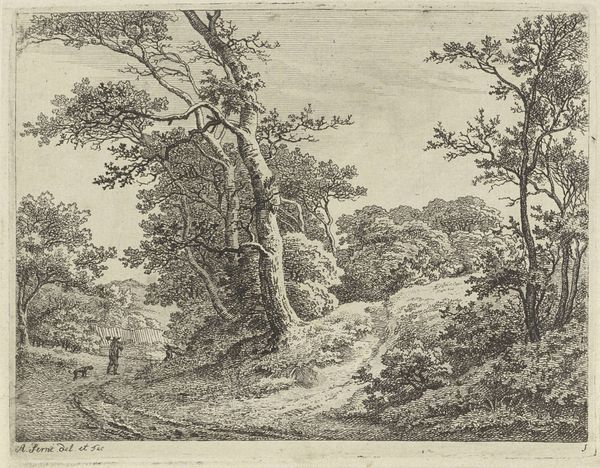
drawing, print, etching, paper
#
drawing
#
baroque
# print
#
etching
#
landscape
#
paper
#
pencil drawing
Dimensions: 214 × 284 mm (image); 222 × 285 mm (sheet)
Copyright: Public Domain
Anthonie Waterloo made this print, “The Parts of the Wood Newly Cut,” sometime in the 17th century. It’s an etching, meaning that the artist created an image on a metal plate using acid, then inked and printed it onto paper. Look closely, and you can see how Waterloo used careful, controlled lines to evoke the textures of bark, leaves, and freshly hewn wood. This wasn't just a scenic view. In 17th-century Holland, timber was big business. The Dutch Republic was a major shipbuilding power, and all those ships needed wood – a lot of it imported from abroad. So this image of neatly stacked lumber, and a forest being systematically harvested, is about more than just nature. It speaks to human industry, and the transformation of natural resources into a commodity. Paying attention to materials and making processes helps us to see these connections, challenging the traditional idea that art is separate from everyday life and labor.
Comments
No comments
Be the first to comment and join the conversation on the ultimate creative platform.
